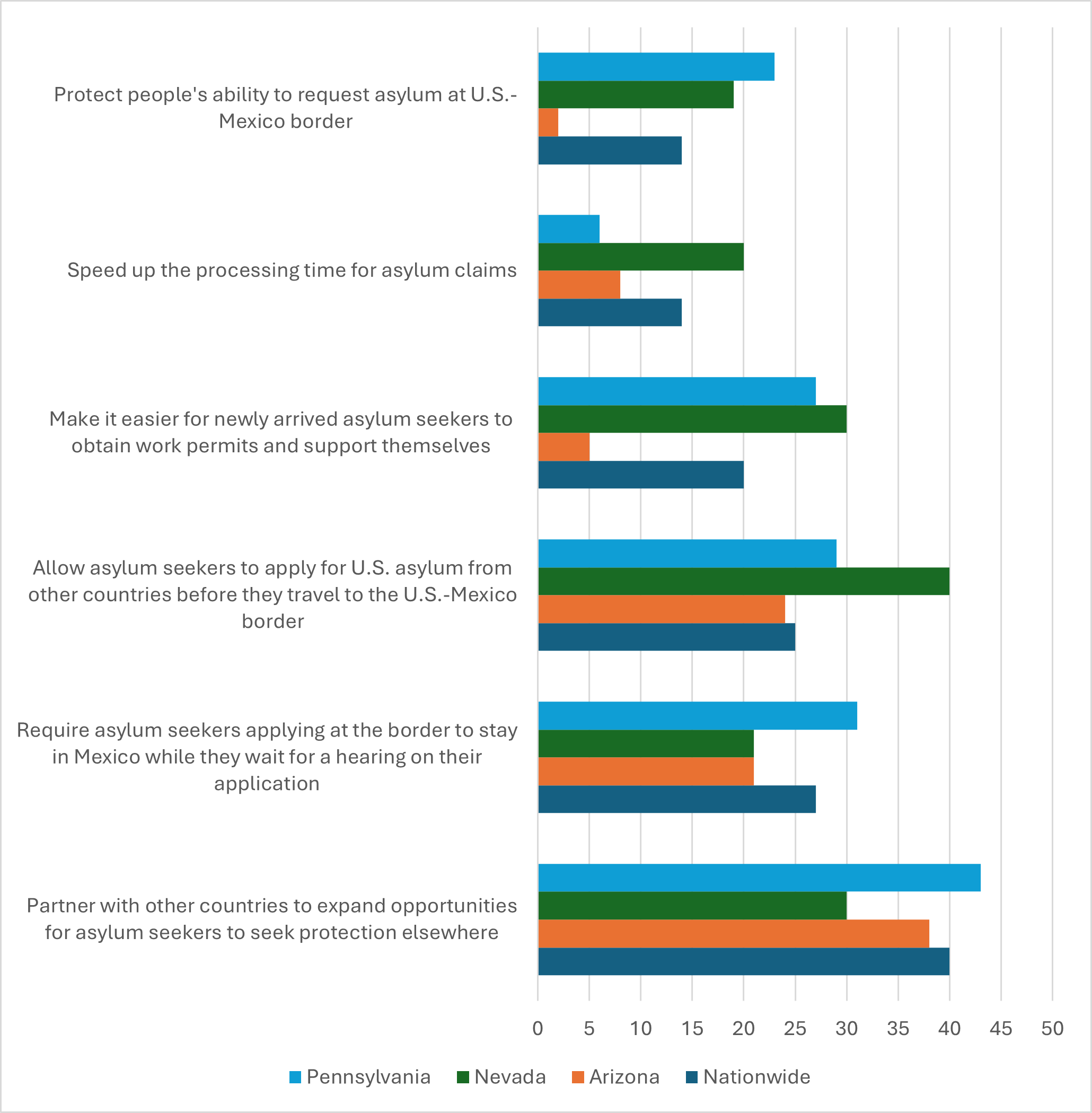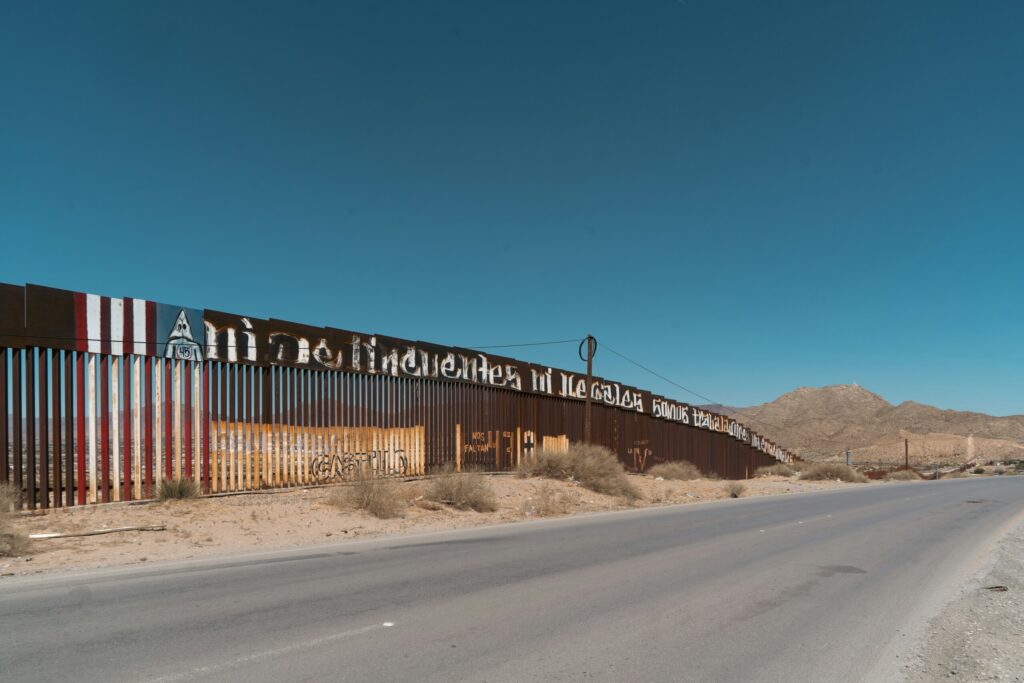(UnidosUS) —
UnidosUS recently released three polls assessing the views of 250 registered Latino voters in Arizona, Nevada and Pennsylvania about the situation at the U.S.-Mexico border and their border policy preferences. Like the nationwide poll that UnidosUS fielded to understand these perspectives at the national level, the survey found that Latinos want a balanced border approach that embraces the principles of firmness, fairness and freedom of cruelty to meet these challenges.
In terms of overall immigration policy priorities, all three polls’ respondents ranked a path to citizenship for long-term immigrants and Dreamers as their top two priorities (Figure 1). These results align with the ones from the national poll, which found the exact same trend, and past UnidosUS polling that showed the same results as well.
Figure 1: State Breakdown of Latino’s Overall Immigration Policy Priorities

Arizonan respondents subsequently prioritized increasing legal immigration and border security while tackling human smugglers and increasing border security emerged as the other priorities for respondents from Pennsylvania, ranking these higher than Latino voters nationwide. Nevada respondents sat between these two positions, prioritizing a crack down on human smugglers and increasing legal immigration.
With regards to border policies specifically, the state polls also found that their respondents had the same major priorities as the ones in the nationwide survey. As Figure 2 shows, cracking down on human and drug trafficking and smuggling emerged as the highest priorities across the three states, aligning with the border policy findings in the nationwide survey.
Figure 2: State Breakdown of Latino’s Net Border Policy Priorities

Some variations in border policy priorities emerged with providing relief to long-residing undocumented individuals, however. Arizona’s respondents prioritized expanding funding for border security funding over relief for the undocumented by a small margin, a divergence from the respondents from the Silver and Keystone states who ranked relief and increasing border security funding as their second and third priorities, respectively, like their nationwide counterparts.
Finally, the three polls found the respondents prioritized a hemispheric approach to U.S. asylum policy at the border, mirroring the nationwide results. All three sets of respondents prioritized working with other countries to help asylum seekers find protection elsewhere and allowing asylum seekers to apply for protection in the United States from other countries. Nevada and Pennsylvania further prioritize granting asylum seekers work permits and protecting their ability to request asylum at the border, policies which are less of a priority in Arizona, even relative to nationwide results.
Figure 3: State Breakdown of Latino’s Policy Priorities

Conclusion: Finding Variation in Latino Voter’s Consensus on a Firm, Fair, and Free of Cruelty Border Framework
The results from these polls support the idea that Latino voters want a border policy that is firm, fair and free of cruelty. Although the Latino respondents in these three states do no capture all the nuances that exist for their counterparts in other states, these three polls work with the nationwide version to identify the measures that align with these principles, serving as a roadmap for a better, more principled discussion about our border challenges.
That said, the results do suggest that Latino voters may prioritize the order of these principles in subtle, but significant ways. The policy priorities for respondents from Nevada prioritized suggested a preference for a U.S. border policy where “fair” measures serve as the point of emphasis for tackling the border. In contrast, the respondents from Arizona and Pennsylvania largely aligned with their nationwide counterparts’ preference for having firm measures lead the country’s response to the border.
These variations have two implications for policy and perceptions about Latino voters’ views about the border. First, they suggest that variations do exist in Latino voter’s border policy preferences, defying simplistic narratives about the community’s view on this issue. They suggest an effective border policy that embraces the values and views of Latino voters must balance fair and firm policies, with a rejection of cruelty serving as unifying principle for a community that wants a secure, humane border.
—
Read More News from UnidosUS
